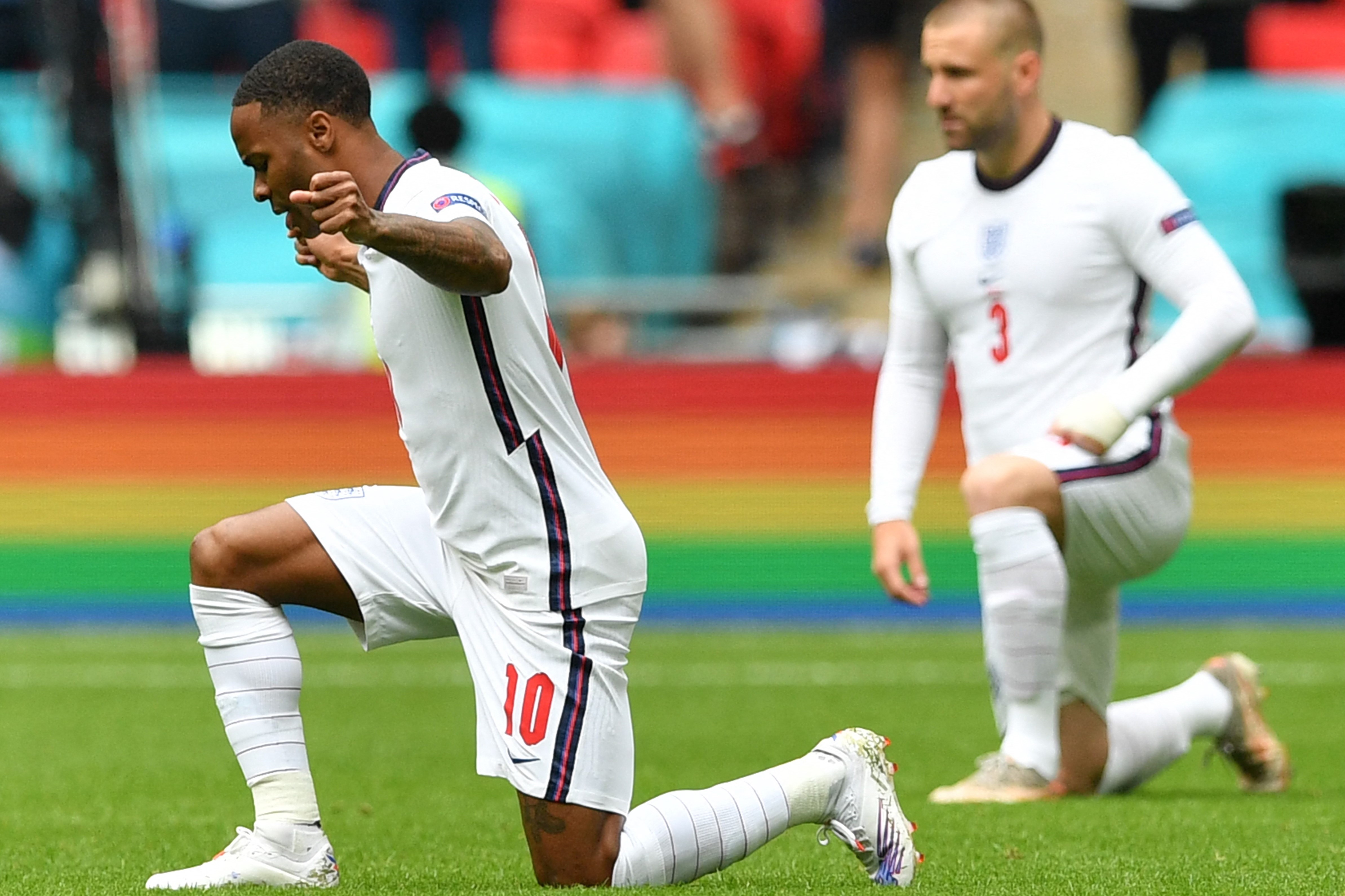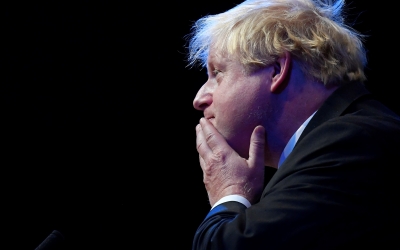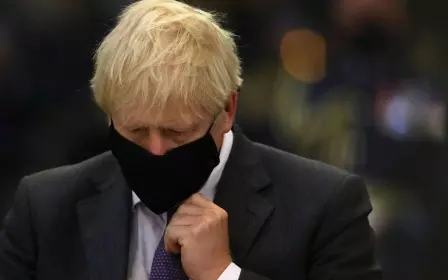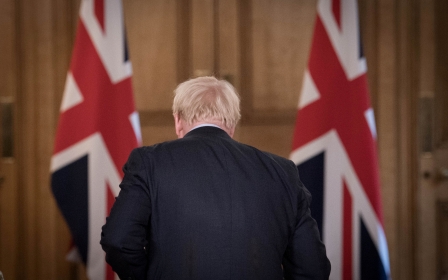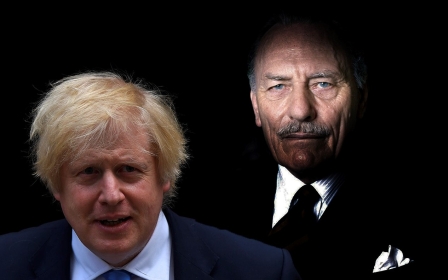Euro 2020: The battle of two Britains
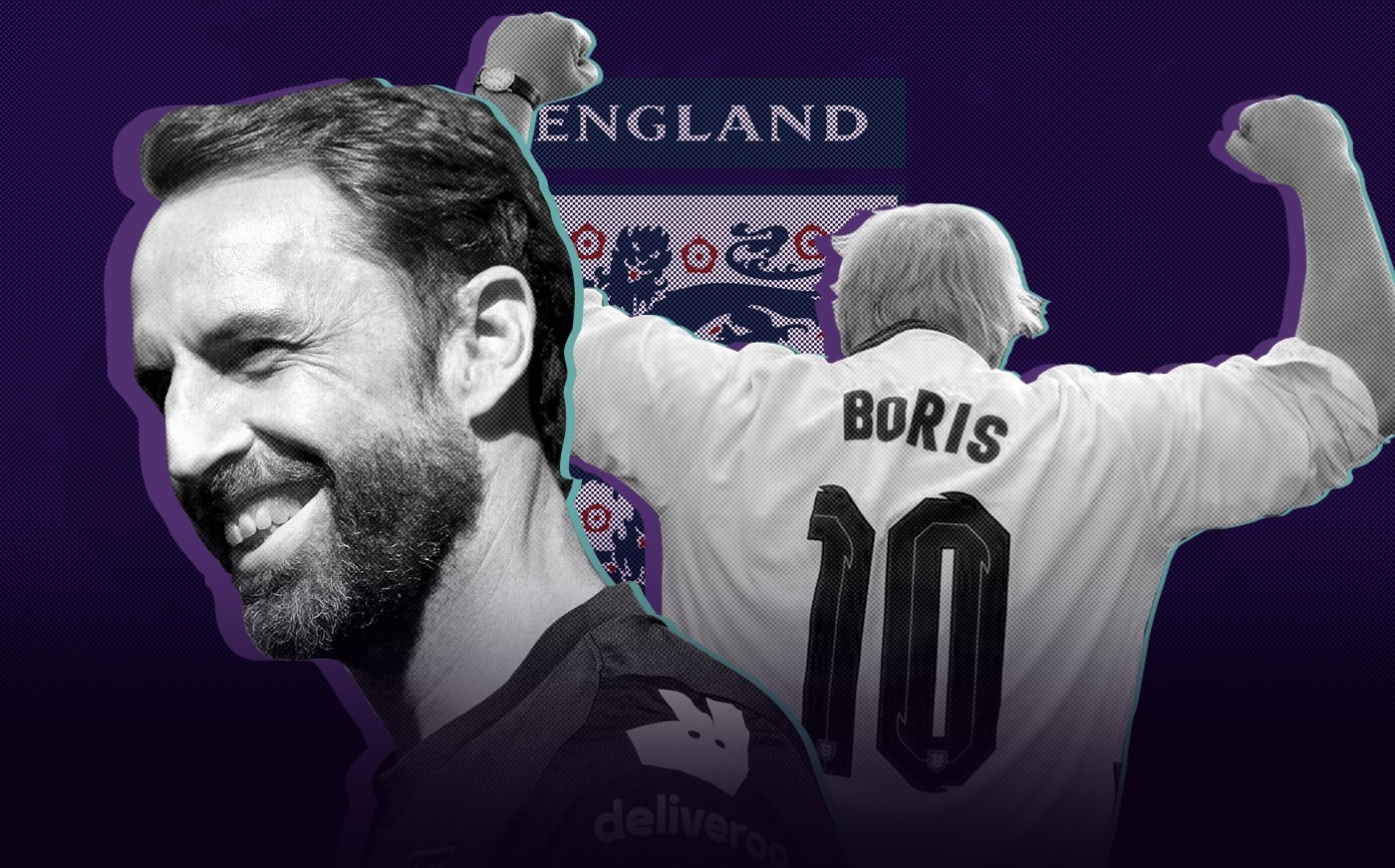
Let's imagine the scene. Harry Kane, the captain of England's national team, and his footballers win this Sunday’s Euro cup final against Italy and become champions of Europe. British Prime Minister Boris Johnson, who has milked every last ounce of political advantage out of England’s unexpected success, invites them for the usual celebration.
Boris Johnson has milked England’s sporting triumph for all it is worth to aggrandise his own political project
Kane’s heroes stroll up Downing Street where they pose for photographs outside the famous front door. And collectively take the knee.
This anti-racist statement has grown in popularity ever since American footballer Colin Kaepernick made it during the Stars and Stripes five years ago, explaining that he could not stand during the national anthem because it would show pride in the flag of a country that oppressed black people.
The message was directly aimed at then soon-to-be US President Donald Trump and his celebration of white supremacy. Martin Luther King had been the first to take the knee very shortly before his assassination in 1968.
Ever since the barbaric murder of African American George Floyd in Minneapolis last year, it has become a defining feature of the Black Lives Matter movement's protests. Dropping to take the knee at the start of matches has become second nature to English premiership footballers since last summer.
New MEE newsletter: Jerusalem Dispatch
Sign up to get the latest insights and analysis on Israel-Palestine, alongside Turkey Unpacked and other MEE newsletters
Boris Johnson’s Tory party members, however, have been fierce critics of this stance. For many of them Black Lives Matter is a "Marxist" movement which is fundamentally opposed to the "British values" that Johnson advocates.
So when England football manager Gareth Southgate made it plain that his players would take the knee at the start of matches, there was instant Tory anger. Home Secretary Priti Patel, who has built her career in office by stoking English culture wars, labelled taking the knee as "gesture politics" and refused to condemn English fans who booed the national team when they did so. "That’s a choice for them, frankly," she said.
A dark contradiction
Boris Johnson also refused to condemn those who booed players for taking the knee, while his official spokesperson told journalists that "the prime minister is more focused on action rather than gestures".
This stand gained the support of the Tory press, with The Times newspaper declaring that taking the knee had "exhausted its purpose and is now more divisive than it is helpful".
Tory MP Brendan Clarke-Smith went further, saying that the Black Lives Matter movement had "sinister motives" including "crushing capitalism, defunding the police, destroying the nuclear family and attacking Israel". Another Tory MP Lee Anderson said that he would boycott the matches.
There is, therefore, a dark contradiction at the heart of Johnson’s support for the England team.
On the one hand the prime minister (who privately takes little or no interest in football) is opportunistically determined to milk every last ounce of political advantage as a series of carefully posed photographs of him wearing a football shirt with the number 10 emblazoned on it demonstrate.
On the other, Southgate’s thoughtful, well-mannered football team have come to embody a vision of a multi-cultural, inclusive Britain which Johnson is determined to obliterate. Gary Neville, a former England football star, pinpointed the difference between the two men when he called Southgate "respectful, humble, tells the truth, everything a leader should be".
Flirting with racism
So let’s imagine for a moment the encounter between England’s star striker Raheem Sterling and Johnson if England were to become the Euro 2020 champion and the team get invited to Downing Street. Jamaica-born Sterling, who as a child used to clean hotel toilets with his mother Nadine, has come up the hard way.
No less than six of the England squad come from a West Indian heritage. How many of them would have been allowed into Britain under Patel’s tough anti-immigrant policies?
He knows from a nightmarish personal experience what it is to be on the receiving end of racial abuse.
Johnson, by contrast, is an expert in doling out racial abuse. He’s called black people "piccaninies" and spoken of their "water melon smiles". Johnson used the racist slur "coon" six times in one of his books. He’s compared women wearing burkas to "letterboxes". He’s defended British colonialism in Africa.
Opinion is divided about whether Johnson conforms to the classical definition of a racist in the sense of someone who believes in a hierarchy of races, normally with the white race at the top. But there is no doubt that he uses racist expressions, Islamophobic language and, on at least one occasion, adopted antisemitic tropes.
And there is no question that Johnson's flirtation with racism served him politically on his way to the top of politics. It may also be relevant to note that Johnson's special adviser for civil society and communities, Samuel Kasumu, resigned earlier this year.
Two visions
No less than six of the England squad come from a West Indian heritage. How many of them would have been allowed into Britain under Patel’s tough anti-immigrant policies?
Two visions of England will collide if Harry Kane and his lions stroll up to Downing Street. Perhaps it will be an understated and a very British occasion. Kane, Sterling and the rest will shake the prime minister’s hand and leave it at that.
Or perhaps not.
After all Boris Johnson has milked England’s sporting triumph for all it is worth to aggrandise his own political project. Why should English footballers in turn allow themselves to become an appendage? But this is to get ahead of the story. Way ahead.
First of all Gareth Southgate and his heroes need to defeat Italy on Sunday night. And the entire nation will be cheering them on.
Additional research by Mahdi Mustafa and Meryl Lim.
The views expressed in this article belong to the author and do not necessarily reflect the editorial policy of Middle East Eye.
This article is available in French on Middle East Eye French edition.
Middle East Eye delivers independent and unrivalled coverage and analysis of the Middle East, North Africa and beyond. To learn more about republishing this content and the associated fees, please fill out this form. More about MEE can be found here.



